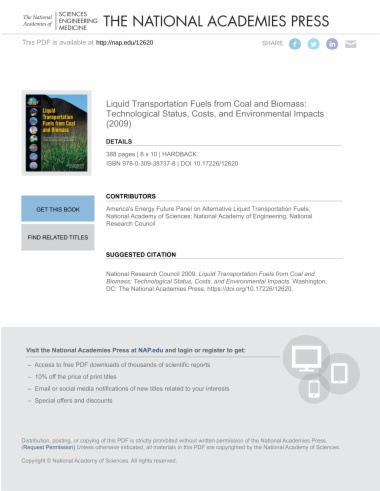

The transportation sector cannot continue on its current path: The volatility of oil prices threatens the U.S. economy, the large proportion of oil importation threatens U.S. energy security, and the massive contribution of greenhouse gases threatens the environment. The development of domestic sources of alternative transportation fuels with lower greenhouse emissions is now a national imperative.
Coal and biomass are in abundant supply in the United States and can be converted to liquid fuels that can be combusted in existing and future vehicles. Their abundant supply makes them attractive candidates to provide non-oil-based liquid fuels to the U.S. transportation system. However, there are important questions about the economic viability, carbon impact, and technology status of these options.
Liquid Transportation Fuels from Coal and Biomass provides a snapshot of the potential costs of liquid fuels from biomass by biochemical conversion and from biomass and coal by thermochemical conversion. Policy makers, investors, leaders in industry, the transportation sector, and others with a concern for the environment, economy, and energy security will look to this book as a roadmap to independence from foreign oil. With immediate action and sustained effort, alternative liquid fuels can be available in the 2020 time frame, if or when the nation needs them.